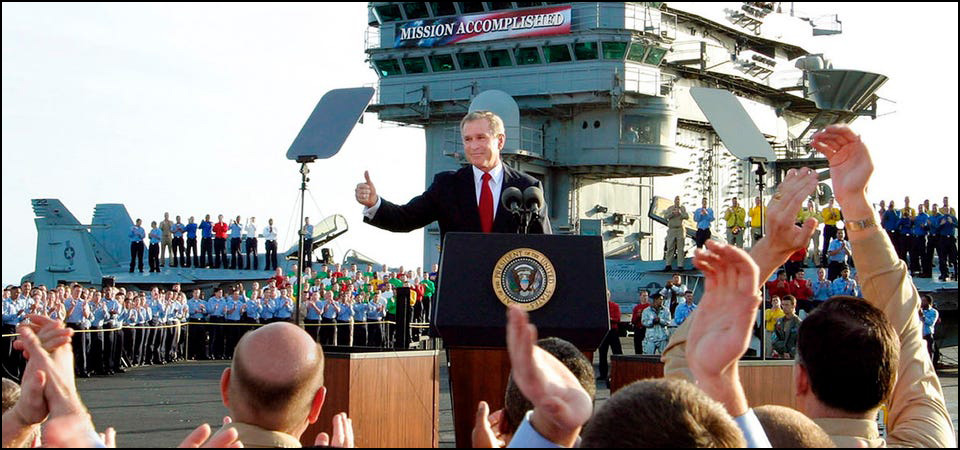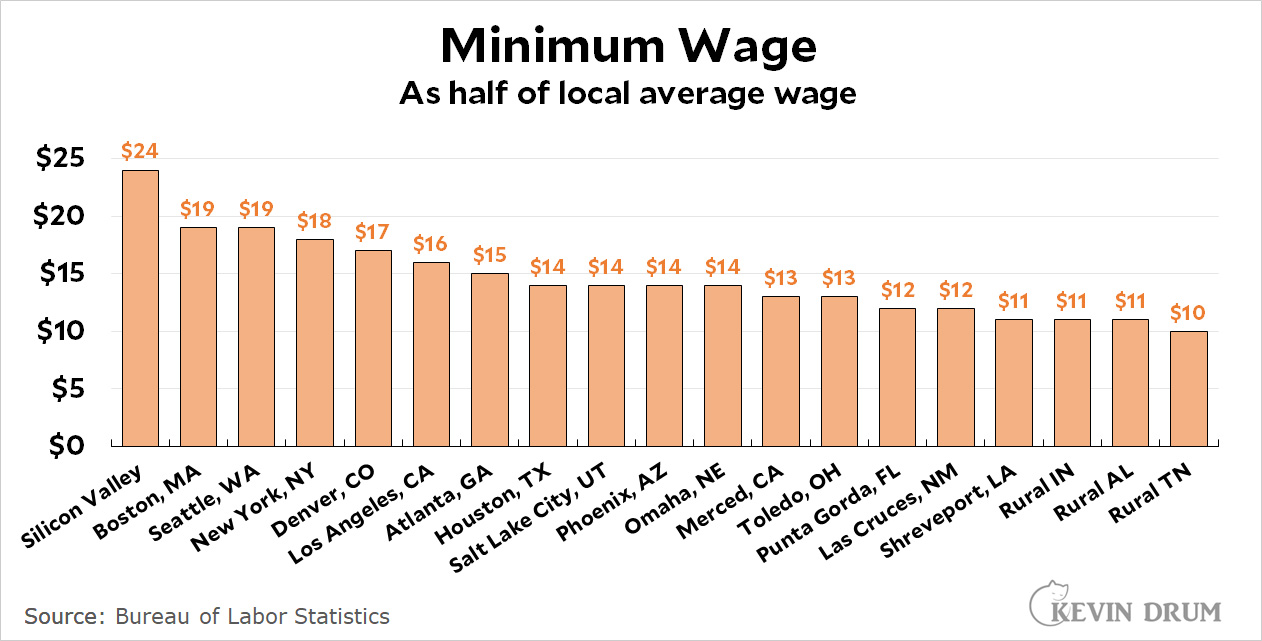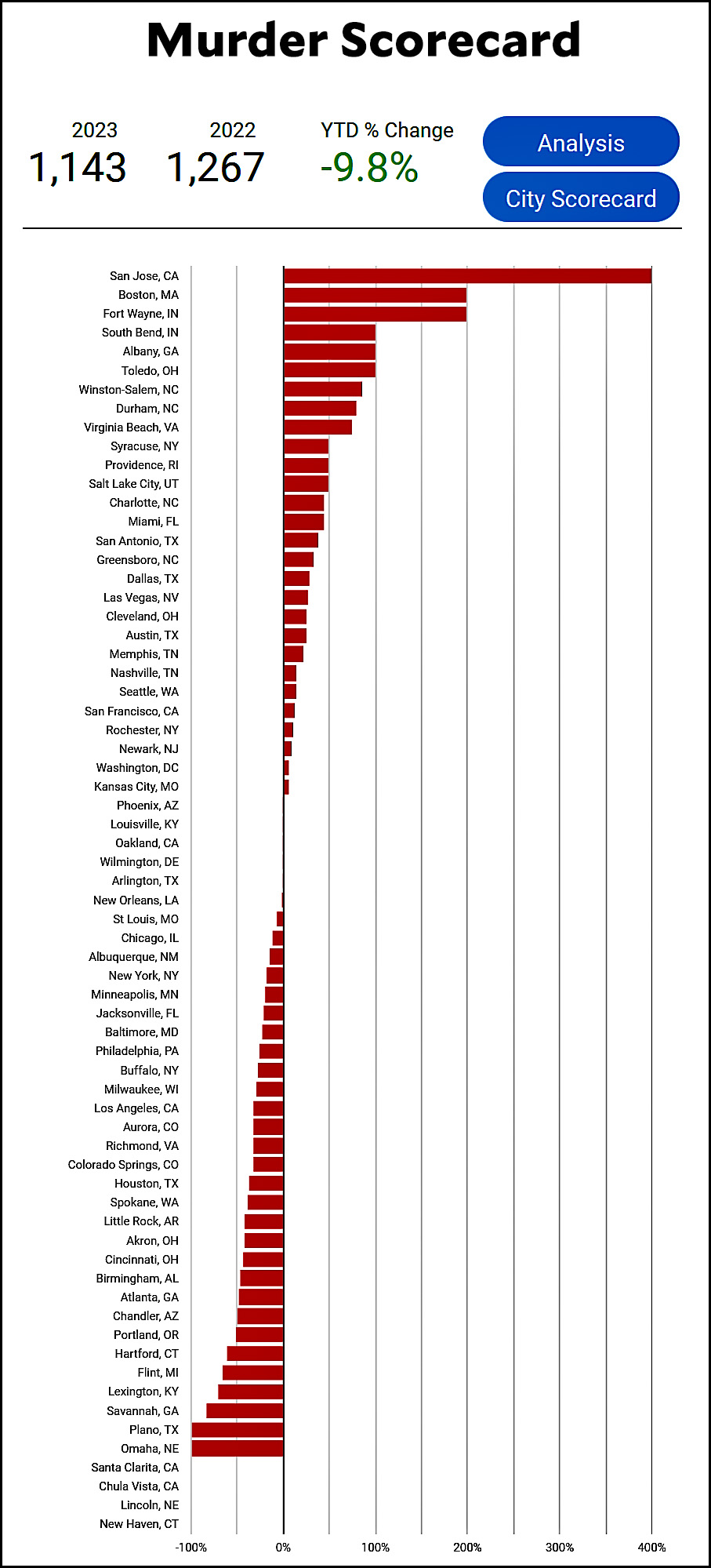A brief Twitter exchange yesterday got me to thinking about one of the favorite former topics here in the discourse-o-sphere: neocons. If you're over 40 50 you remember them: the cabal of foreign policy intellectuals who were behind the invasion of Iraq and had visions of an American imperium that stretched across the entire Middle East. Their names were little known to average folks, but within the national security community they produced many of the ideas that led to the Iraq War.
But time passes and memory fades. Who were these men? There was Doug Feith, “the fucking stupidest guy on the face of the earth,” according to General Tommy Franks. There was his deputy, Paul Wolfowitz, who insisted that General Eric Shinseki was "wildly off the mark" when he said it would take several hundred thousand soldiers to keep peace in postwar Iraq. On the contrary, he told Congress, it would be a piece of cake:
In his testimony, Mr. Wolfowitz ticked off several reasons why he believed a much smaller coalition peacekeeping force than General Shinseki envisioned would be sufficient to police and rebuild postwar Iraq.
He said there was no history of ethnic strife in Iraq, as there was in Bosnia or Kosovo. He said Iraqi civilians would welcome an American-led liberation force that "stayed as long as necessary but left as soon as possible," but would oppose a long-term occupation force. And he said that nations that oppose war with Iraq would likely sign up to help rebuild it.
"I would expect that even countries like France will have a strong interest in assisting Iraq in reconstruction," Mr. Wolfowitz said. He added that many Iraqi expatriates would likely return home to help.
Who else? There was Paul Bremer, who was appointed czar of Iraq after the invasion and promptly disbanded the Iraqi army, got rid of every Baathist he could find, and laid the groundwork for the uprisings that were to come.
And there were the old talkers, people like Richard Perle and Elliott Abrams, who didn't play much of a role in the Bush administration but spoke and wrote a lot about neoconservative ideas.
 Whatever happened to these guys? Well, Feith does a bit of speechifiying these days, but not much else. Wolfowitz was appointed president of the World Bank a couple of years after the war started but was forced to resign before the Bush administration even ended.
Whatever happened to these guys? Well, Feith does a bit of speechifiying these days, but not much else. Wolfowitz was appointed president of the World Bank a couple of years after the war started but was forced to resign before the Bush administration even ended.
Paul Bremer paints and serves on a board or two. Perle doesn't do much of anything. Abrams wrote a book and then spent a couple of years in the State Department under Donald Trump.
In other words, not to put too fine a point on it, all of these folks dropped off the face of the earth after the Bush administration ended. Their influence is now about zero.
But that's not really what interests me. Since we're reminiscing about the Iraq War this week, I began thinking about the neocons and reevaluating how much influence they ever had. They certainly influenced the Reagan administration, but that was a couple of decades in the past when George W. Bush came to office.
With the benefit of hindsight, my conclusion is that they had almost no influence at all on the Iraq War. The architects of the war were Dick Cheney, Donald Rumsfeld, and George Bush, none of whom were neocons or anything close to it. They were just ordinary Republican hawks. They didn't care about democracy promotion or an imperial America or any of that. They just wanted to kick Saddam Hussein's butt and take his oil.
For them, the neocons were handy partners—true believers who could help promote a war with Iraq—but that was about it. Cheney was happy to have their help with that, but otherwise they didn't influence his thinking one whit.
So they never got what they wanted. Of course, Cheney didn't get what he wanted either: a quick demolition of Iraq followed by an auction of its oil to the highest (American) bidders. But unlike the neocons, who failed because they were deceived by Cheney and Bush, Cheney failed because events on the ground exploded in his face. Both the neocons and the hawks were stupid, but they were stupid in different ways.
The neocons offered a handy public face to attract the hatred of anti-war activists, but they never had anywhere near the influence we thought they did. They weren't quite useful idiots, but they were in the ballpark.




